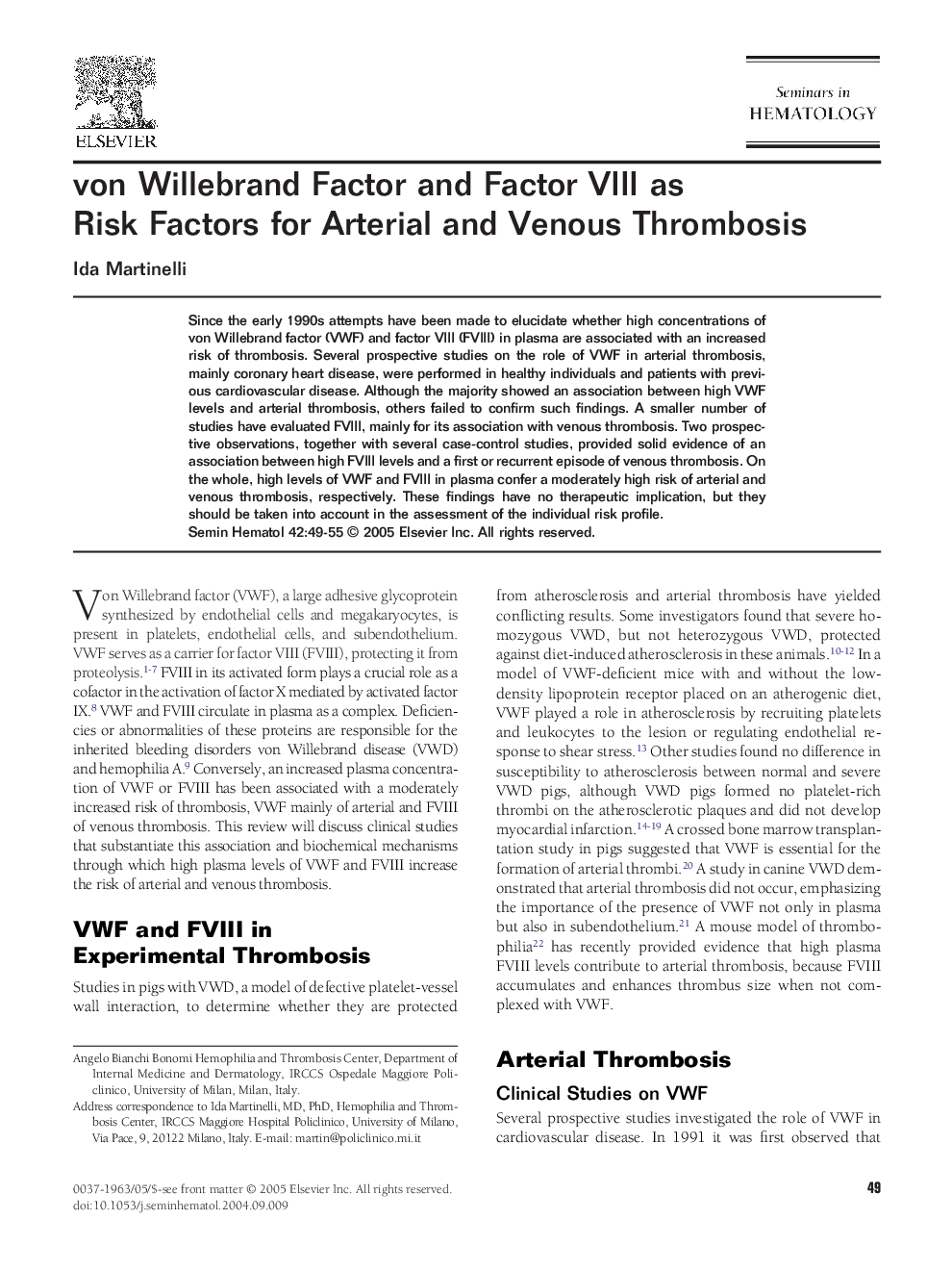| Article ID | Journal | Published Year | Pages | File Type |
|---|---|---|---|---|
| 9258424 | Seminars in Hematology | 2005 | 7 Pages |
Abstract
Since the early 1990s attempts have been made to elucidate whether high concentrations of von Willebrand factor (VWF) and factor VIII (FVIII) in plasma are associated with an increased risk of thrombosis. Several prospective studies on the role of VWF in arterial thrombosis, mainly coronary heart disease, were performed in healthy individuals and patients with previous cardiovascular disease. Although the majority showed an association between high VWF levels and arterial thrombosis, others failed to confirm such findings. A smaller number of studies have evaluated FVIII, mainly for its association with venous thrombosis. Two prospective observations, together with several case-control studies, provided solid evidence of an association between high FVIII levels and a first or recurrent episode of venous thrombosis. On the whole, high levels of VWF and FVIII in plasma confer a moderately high risk of arterial and venous thrombosis, respectively. These findings have no therapeutic implication, but they should be taken into account in the assessment of the individual risk profile.
Related Topics
Health Sciences
Medicine and Dentistry
Hematology
Authors
Ida Martinelli,
